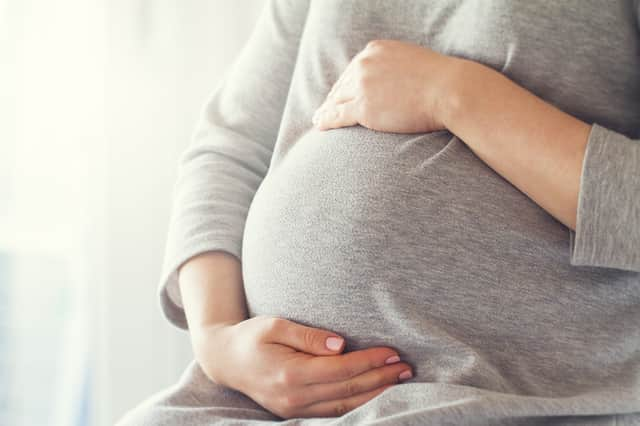New and expectant mothers have experienced a ‘significant increase in poor mental health’ - resources and help available


There has been a “significant increase in poor mental health” reported by pregnant women and new mothers during the coronavirus pandemic, exacerbating gaps in support, according to analysis.
A rise in the risk of anxiety, depression, loneliness and suicidal thoughts has been found, as women navigate pregnancy and early motherhood during the pandemic, through review of evidence.
Women of colour and those from poorer backgrounds particularly affected
Advertisement
Hide AdAdvertisement
Hide AdThe evidence was gathered by the Centre for Mental Health, which conducted a rapid review for the Maternal Mental Health Alliance (MMHA), and found that women of colour and those from poorer backgrounds had been particularly affected.
The pandemic has created a mental health crisis for many new or expectant mothers, which is likely to have long-term consequences, the MMHA review found.
The coronavirus pandemic has also created new increased pressures, including fears about giving birth alone without partners, fearing losing their job, and the possibility of their baby catching Covid-19.
Limitations on services because of the pandemic, combined with informal support networks being curtailed, has resulted in several new mothers struggling, particularly at the start of the pandemic.
Advertisement
Hide AdAdvertisement
Hide AdThe review also revealed that babies born during the pandemic have experienced far less socialisation than they would normally.
This has resulted in young people showing more clinginess, introversion and greater alarm at strangers. However, it is not yet clear what the long term impact on children born during the pandemic will be.
Call for government to address gap in parental services
The MMHA, a network of over 100 national organisations, is calling on the Government to address gaps in perinatal services and protect and improve the wider system for new and expectant mothers.
Luciana Berger, MMHA chairwoman, said: “Today’s report should serve as an ear-splitting warning siren about the dangers to women’s maternal mental health and potential risks to the wellbeing of their babies.
Advertisement
Hide AdAdvertisement
Hide Ad“The pandemic has placed additional challenges on new and expectant mums getting the care and support they need, taking many already stretched services to the point of breaking.
“Women of colour and women from disadvantaged backgrounds have been particularly impacted, and ministers must address this injustice with urgency.”
Vicky Nevin, senior policy and public affairs officer at the NSPCC, said: “This report echoes our concerns that a lack of support for mental health problems during and after pregnancy can have serious consequences for parents, children and their families.
“Access to support during the crucial perinatal period has long been inconsistent, but the pandemic has now thrown up even bigger challenges – particularly for parents raising babies in the UK’s most deprived communities.”
Parenting mental health tips
Advertisement
Hide AdAdvertisement
Hide AdTaking care of your mental health can be challenging in everyday situations, and it is important now, more than ever.
As a parent, changing to mental health can sometimes affect children and their wellbeing, but this doesn't mean you should minimise your feelings.
Here are some tips and coping strategies for good mental health:
- If you are able to keep physically active, this may help your mental health. It will also help you boost your immune system, and will possibly encourage your children to exercise too. Even sitting by a window for some fresh air can do your mental health wonders
- Keep in touch with your family and friends on the phone or through video calls
- Join a support group or network online. Talking to others in a similar situation can help netmums.com offers forums for both mums and dads
- Manage how much news you take in through the day. Creating limits on how much time you spend on social media is a possibility. Staying up to date is important, but you should be mindful of your own wellbeing
Organisations that help with parents mental health
These are some organisations that will help and support children, parents and pregnant women:
Advertisement
Hide AdAdvertisement
Hide AdMindMind has lots of information and support for people experiencing mental health problems and their friends and families.
SamaritansSamaritans run a round the clock service to support people going through a tough time.
SANESANE offers emotional support for people affected by mental health problems and their families and friends.